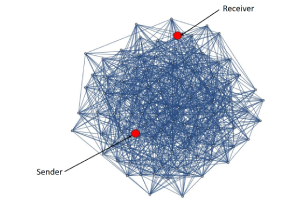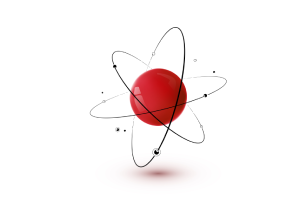Research

FOUNDATIONAL ASPECTS
Understanding the nature of reality, measurement problem are some of the very intriguing questions that have puzzled the best minds of this planet over a decade. The second quantum revolution marking rise of quantum information and computation has been possible because as researchers we never left the foundational questions unaddressed. At CQST@IIIT-H we try to understand interesting domains like:
1) Impossible Operations in Quantum Theory which in turn makes quantum information more private, secure and permanent
2) The power of quantum computing in presence of closed time like curves (CTC)
3) Understanding the nature of information present in a single or multiple quantum systems to name a few

QUANTUM COMMUNICATIONS
One of the most successful part of the quantum information theory is the successful communication of both quantum (data qubits) and classical message (data cbits) with the help of quantum resources. This is something we have never imagined three decades before. The principle of quantum mechanics plays a pivotal role in making the communication more secure and smart, eventually leading to the realization quantum network. In our group we work on interesting areas like
1) Characterization of Resource for Quantum Network
2) Broadcasting of Resources predominantly

QUANTUM COMPUTING
Quantum computers can help solve a number of problems much faster than their classical counterparts as evidenced by the development of several exciting quantum algorithms. On the hardware front, Google’s recent experiment demonstrating Quantum Supremacy implies that quantum computers of a few hundred qubits will be available soon.
At CQST@IIIT Hyderabad, we are currently working on various quantum algorithmic frameworks, trying to identify problems for which there will be a significant quantum speedup. Broadly, our short/medium-term goal is to develop quantum algorithms and protocols that can be run on small-scale, noisy quantum computers available in the next 5-10 years. Significant emphasis is also given to developing novel quantum algorithms in the different quantum computational models.

OPEN QUANTUM SYSTEMS
At CQST@IIIT, we are currently working on various quantum device modelling frameworks, looking at the long time goal of constructing quantum hardwire engineering. Our short and mid term goal is to model basic quantum electronic circuit designing like quantum thermal diodes, transistors, capacitors, oscillators, operational amplifiers and so on. Based on these findings, we are looking forward to design quantum microprocessors. On some other aspects of quantum information theory in connection to the methodology of open quantum systems, based on the structure of positive and completely positive maps, we are also trying to device novel methods for various quantum resource detection, such as entanglement.